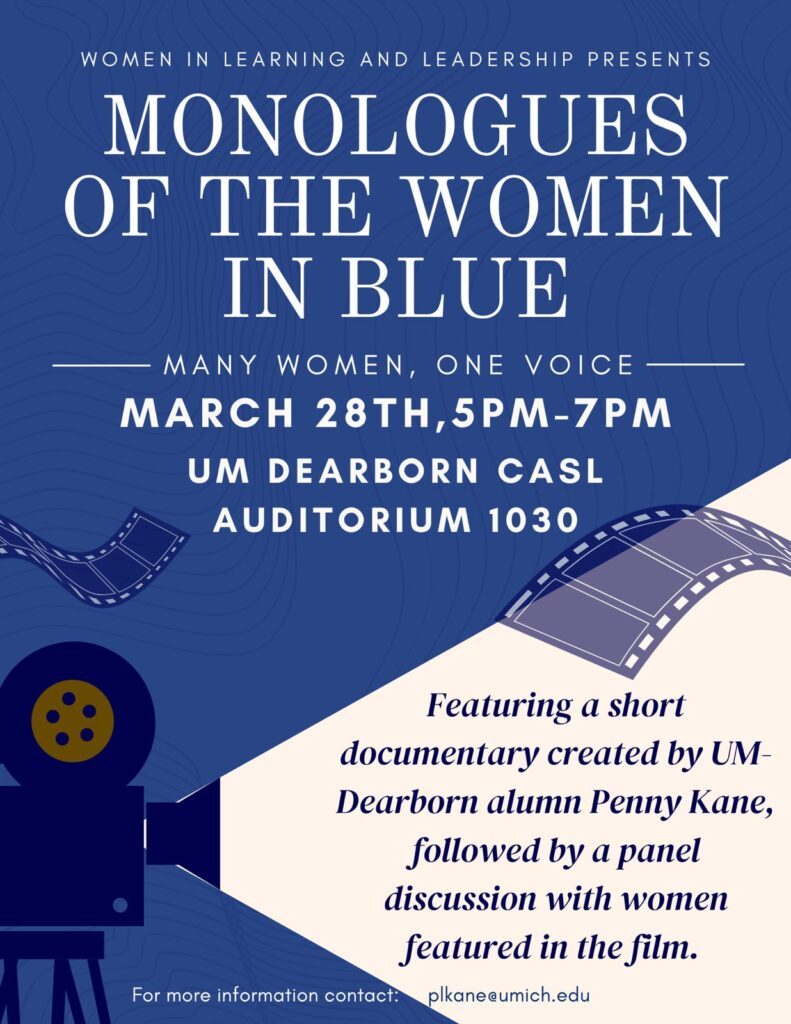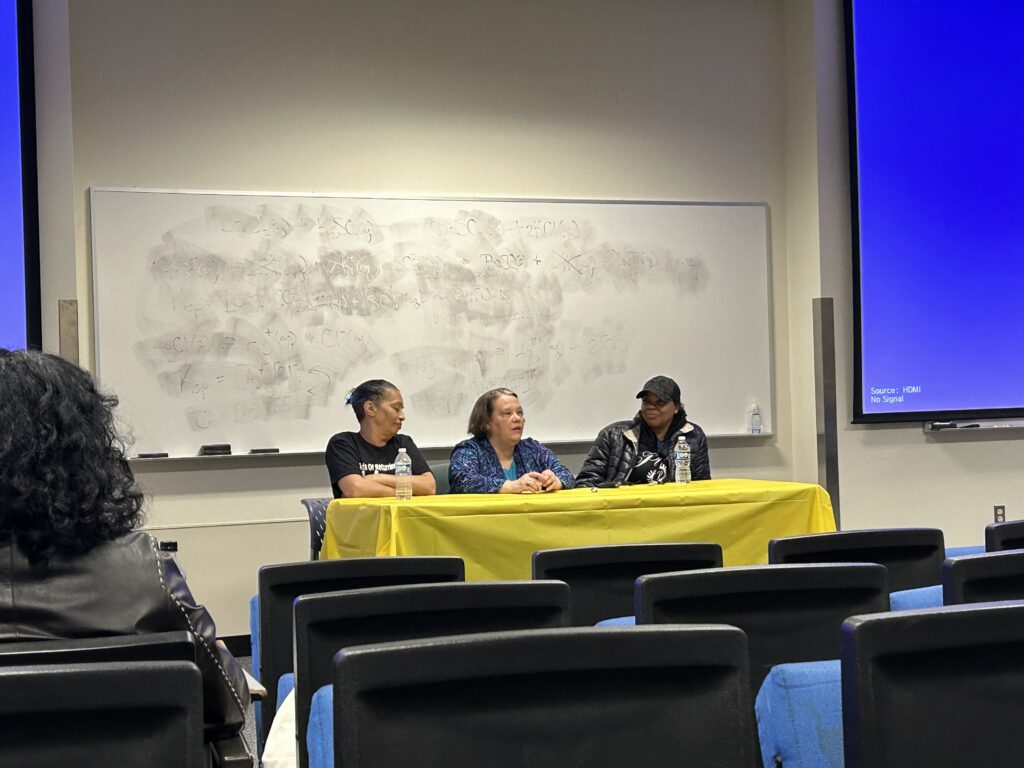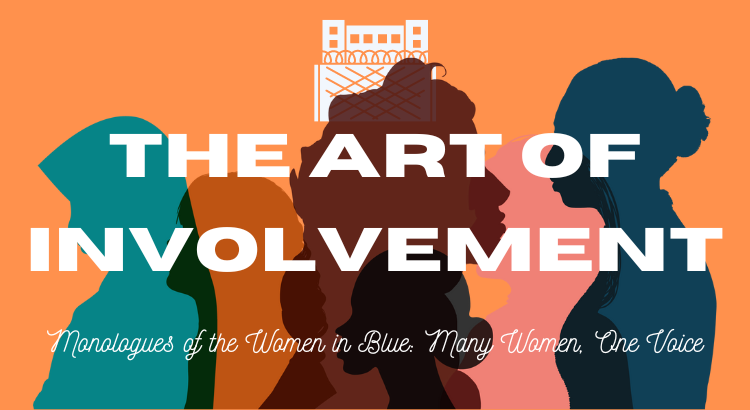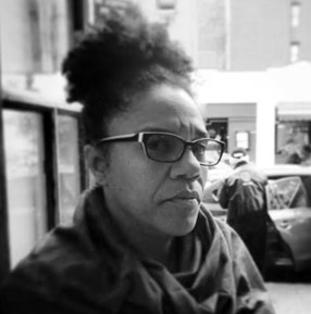A Student-made Project Centering Incarceration as Experienced by Women
“I am the voice for the voices that can’t be heard.”
Everyone on the University of Michigan-Dearborn campus knows Penny Kane.
You’d be hard pressed to find a single person on the University of Michigan-Dearborn campus who doesn’t know Penny Kane. And all those (many) same people would be able to tell you that Penny— chatty and genuine, kind and overbooked Penny Kane— is also formerly incarcerated.
Though her sentence is often considered short compared to most and less immediately “scary” as a financial crime, Penny has always made sure to put her experiences with the MDOC (Michigan Department of Corrections) out in the open, humanizing a population so often deprived of their humanity.
Penny represents the women of Huron Valley Correctional Facility, who she calls “the ugly step-children of the MDOC” for the mistreatment, dismissal, and silencing they face while incarcerated. Her writing has been monumental in sharing her story, and in her newest project, Penny has used her writing skills to bring forth stories of 25 women in condensed monologues in a new format: film.

The Monologues premiered at the 25 year anniversary of the Inside Out Prison Exchange in Philadelphia, then showed at DePaul University; I attended the screening that occurred last Thursday. Partially I attended to support Penny, but the other large part of me just wanted to attend something that centered incarcerated women, which is rare.
The film was produced by Journalism and Media Production studio interns with professional lighting and angles. The end result is perfect in its simplicity as it made the words spoken by the women central.
5 different readings presented in the Monologues, each read by a different formerly incarcerated woman explores themes of degradation, loss, beauty, sexuality, abuse… in short, what it really means to be a woman in prison. The film succeeds in balancing common experiences of the women interviewed and their personal experiences.
It was emotionally heavy to hear the experiences of Indigenous women in the prison system from Dakota Shananquet, who likened her deprivation of her Anishinaabe cultural practices while incarcerated to the residential schools her grandmother and mother suffered through. “The criminal justice system can be savage at times,” Dakota says in the film, tearing up at recounting her being forced to miss her own daughter’s funeral and not being able to practice her and her ancestors’ way of life even while grieving.
Another monologue read by Machelle Pearson described “having all her firsts” taken by prison after being incarcerated at 16. While in prison, she was raped by an officer, gave birth, and lost contact with her child quickly. Coming out of the facility at 51 years old, she was able to meet the man he’d become for the first time. She also drove for the first time.
Other topics explored in the Monologues included the dealing of period products in prisons (women were never given sufficient pads and thus they became a treasured kind of currency), making and wearing makeup and perfume in prison, meeting their intimate needs in various ways, and the support systems AKA “prison families” women form. Each story was genuine, full of life and humor. Each segment felt powerful and overwhelmingly human.
Following the film, Penny and two of the women featured in the film, Felicia Cotton and Machelle Pearson were available for questions from the crowd. It’s safe to say that the film brought up many questions and reactions from the viewers and resulted in a heathy, open conversation, including the perspective of an attendee who used to work within the justice system overseeing jails. Machelle spoke about her experience meeting her son and learning how to survive in prison after coming into it with a young, less cynical mind. Felicia was one of the women that really looked out for her, and this lead us into deeper discussion describing the prison family dynamic. All three remain involved in activism on behalf of “the women left behind”, as Machelle put it.

Penny continues to work towards this goal, seeking to expand the film and the perspectives offered into a 45 minute documentary film. She plans to finish writing the Monologues of Women in Blue (which name she is considering changing due to some confusing it as an event centering women police officers) this Summer, and finish filming in the Fall.
After seeing the film, I pestered our Campus Video Network President, Sydney Mckinney-Williams, to slot it into the student film screening that occurred earlier today. Although I was unable to attend, I heard it was a great event and the film was received well! Penny is hoping that the next screening will be at Wayne State in the Fall. I feel it is a film that needs to be seen and appreciated by many, many people. I have faith that it will be.
The Monologues of Women in Blue: Many Women, One Voice is certain to spark empathy and respect for the incarcerated women that speak through it and create a broader community that will share hopes that other women will have to endure less at the hands of the MDOC.
“When you look at us, don’t feel sympathy; feel empathy. Look at our success.”
– Machelle Pearson



